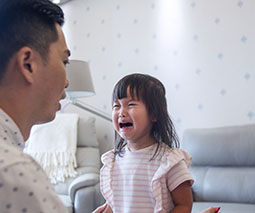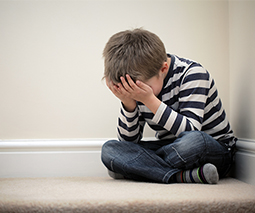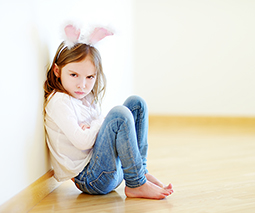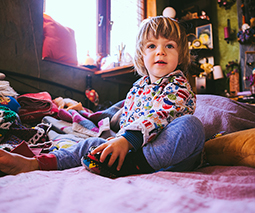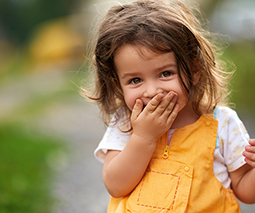My toddler keeps getting bitten at daycare – and here’s what I’m doing about it
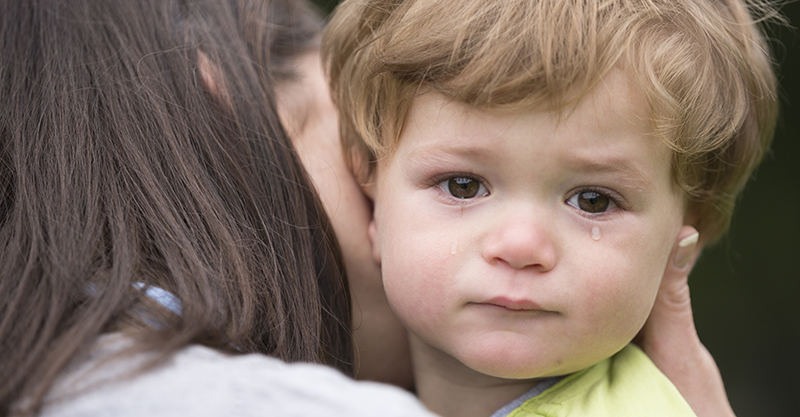
My youngest boy loves going to daycare, in fact he actually cries at the door on the mornings when he doesn’t go (third child FOMO). There’s just one tiny problem: he keeps getting bitten by other kids and he’s not even two years old. It’s been breaking my heart to see him so hurt and upset, so I’ve decided to look into what else can be done.
Daycare leaves its mark
I’d already been having mixed emotions about my last child going to daycare, but he took to it like a duck to water so quickly that it wasn’t long before I was at peace with it. That is, until the first bite marks appeared. When it happened I was distressed but not that surprised. After all, he’s my third son and I’m no stranger to the bumps that come with childcare. I gave him big cuddles, was given an incident report to sign and advised that first aid was given at the time. The parents of the offending child would be notified and given information on how to stop their toddler from biting.
But then it happened again. And again. And again. And each time the bites seem to be getting worse.
Feeling helpless
My poor little guy goes off to daycare so excited and full of beans, until I return to find him looking sad and holding out his arm to show me his bite marks at pick up. I’ve asked the daycare workers and they’ve told me there are several biters in the room, so it’s not just one particular child. Of course I’m not allowed to know who they are as per policy procedures, which is fine, but how can we stop it happening so frequently? Not only am I worried about my son getting hurt, but I’m nervous that he’ll start to hate daycare and worse yet, start retaliating by becoming a biter himself.
Why he’s getting bitten
Each time my bub is bitten I’m told it’s because of a tussle over a particular toy or item he and another child wants to have. This doesn’t surprise me; being the third of three boys my little one is quite used to asserting himself. It’s likely he takes the toys he likes from others or refuses to share them, which would make the other kid frustrated and angry.
Frustration isn’t the only reason a toddler will bite another. According to Care for Kids, children under three may bite because they are teething, curious, excited, unwell, tired, stressed, seeking attention or feeling overwhelmed and powerless (particularly if they’re smaller or younger than the group). So looking for the motivation behind the biting is recommended to parents of biters so they can help break the habit in their child.

What can be done?
It’s very common for little kids to bite and it can happen very quickly with no warning, so it doesn’t necessarily mean that the children aren’t being properly supervised. I know there isn’t a magical solution to stop it from happening at my son’s daycare, but I do want to know if there is anything we can do to help prevent or reduce these incidents.
Read more about daycare issues:
- 8 daycare drop-off tips for clingy little ones
- When is your child too sick for daycare?
- 5 unwanted visitors sure to sneak home from your child’s daycare
How daycare handles biting
The carers are very apologetic and assure me they’re taking all the right actions as per childcare protocol to prevent it from happening. But I was curious to find out what the “correct protocol” was for putting an end to a biting outbreak in a daycare.
According to the National Childcare Accreditation Council, each centre has their own policy on biting, however, most follow a similar version of the below:
- Separate the bitten child and biter when an incident occurs.
- Tell the offender sternly that biting is not acceptable, but don’t punish them or give them too much attention.
- Encourage and praise good interaction behaviour within the group.
- Equip parents of biters with information on how to handle biting at home (e.g. don’t bite them back!).
- Pay closer attention to warning signs that an incident might occur (such as when a child prone to biting might be getting tired and more likely to bite others around them or step in if a fight breaks out over something).
- Look at the children’s experiences when biting occurs and make changes if appropriate (e.g. remove certain toys, revise the daily schedule, or give the child prone to biting more attention during certain activities).
- Help the children learn positive behaviours to express themselves such as using words, spreading out to create more space in a crowded area and seeking help when they need it.
- Teach kids to protect themselves such as moving away from those who are prone to biting when they’re upset or angry.
Communication is the key
The National Childcare Accreditation Council also notes that partnership between parents and carers is important when it comes to incidents such as biting. It’s a childcare’s duty to notify parents when their child has been bitten (or has bitten someone else), and so if this isn’t happening and you’re discovering bites later at home, then you’ll need to have a conversation with them to find out why and ensure it doesn’t happen again.
Waiting it out
Luckily with my son’s daycare the communication is very good, only once did they fail to report a bite which was due to one carer going home and forgetting to give me the report. So even though the biting is distressing, I won’t be looking for a new centre.
I will however be checking up on their procedures to make sure they really are doing everything they can to prevent and reduce the biting incidents from happening – not just for my son, but all the other little ones in the class too. Daycare should be a fun place to be, without having to worry about getting hurt each day.
Toddler life is tricky. Fingers crossed it eases up soon!
Has your child been bitten at daycare or is a biter? What did you do? Share your tips on our Facebook page.
